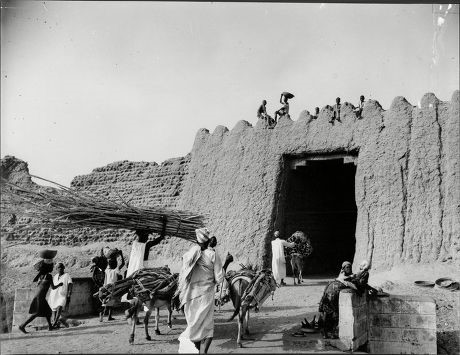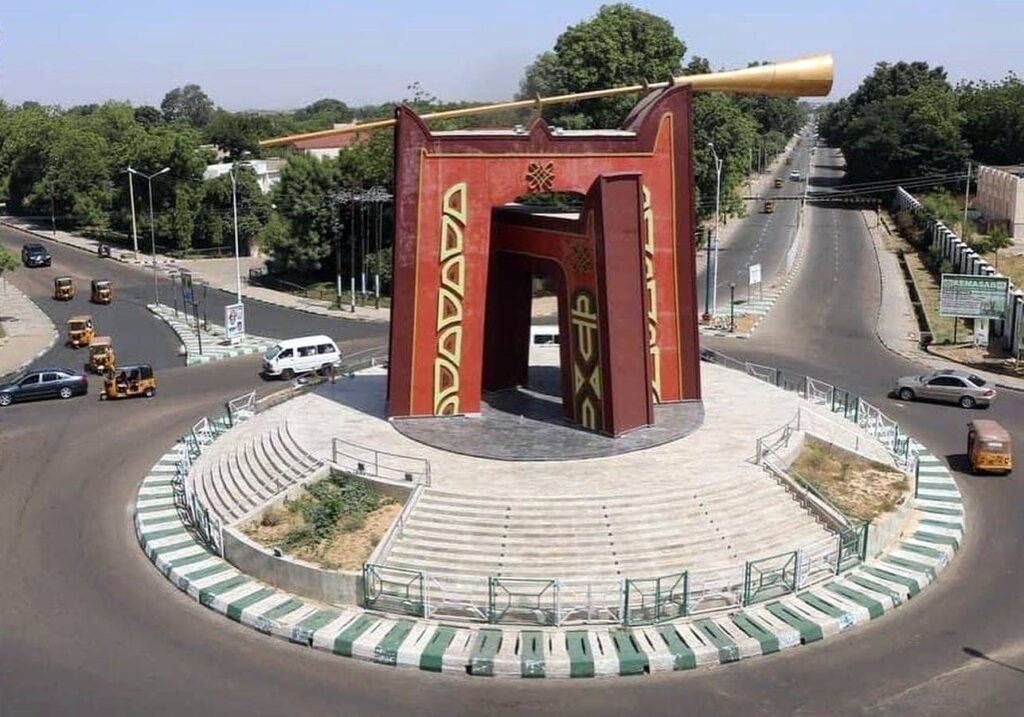Nestled in the heart of Nigeria’s northern region, Kano State is a place where the sands of time seem to echo with the whispers of history. Boasting a rich and diverse heritage, Kano State stands as a testament to Nigeria’s cultural, economic, and political evolution. From ancient city-states to a thriving modern metropolis, Kano’s history is a captivating tale of resilience, trade, and tradition.
The origins of Kano are shrouded in the mists of time, but historical accounts suggest that it emerged as one of the city-states in the region around 1000 AD. Kano’s early inhabitants, known as the Habe, established a settlement that would eventually grow into a thriving city. The city’s location along the trans-Saharan trade routes, particularly the famous “Kano Road,” played a pivotal role in its growth and prosperity.
Kano, along with neighbouring city-states such as Daura, Katsina, and Gobir, became key players in the complex trade networks that connected West Africa to North Africa and the Middle East. These city-states flourished as centres of commerce, attracting traders and merchants from distant lands. Kano’s wealth was derived from the exchange of goods like salt, textiles, and precious metals.
By the 15th century, Kano had evolved into a powerful kingdom, characterised by a well-structured political system and a centralised monarchy. The Habe rulers of Kano established a dynasty that would govern the city for centuries. The kingdom’s wealth and influence were further augmented by its control over vital trade routes and its position as a supplier of agricultural products to the larger region.
Islam began to make its presence felt in Kano in the 13th century, and over time, it became deeply ingrained in the city’s culture and society. The introduction of Islam brought about significant changes, influencing not only religion but also architecture, education, and governance. Kano’s Great Mosque, a masterpiece of Sudano-Sahelian architecture, stands as a testament to this Islamic heritage.
One of the most transformative chapters in Kano’s history was the Fulani Jihad of the late 18th century. Led by the charismatic Usman dan Fodio, this Islamic reformist movement aimed to purify Islamic practices and establish a just and virtuous society. Kano became a stronghold of this movement, leading to profound social and political changes. The establishment of the Sokoto Caliphate brought about a more unified and centralised governance structure in the region.

Kano’s strategic location along ancient trade routes contributed to its economic prominence. The city’s position as a crossroads for trans-Saharan trade allowed it to thrive as a centre for commerce. Kano became renowned for its vibrant markets, where goods from various parts of Africa, the Middle East, and Europe converged. The famous Kano Kurmi Market stands as a testament to this rich trading history.
Like much of Nigeria, Kano State fell under British colonial rule in the late 19th century. The colonial period brought significant changes to the region’s governance, infrastructure, and education systems. The city of Kano became the capital of the Kano Emirate, and traditional institutions adapted to coexist with the colonial administration.
At the time of the invasion in 1903, Kano was a significant centre of trade, culture, and governance. The city’s strategic location along trans-Saharan trade routes had made it a hub for commerce, attracting traders from Africa, the Middle East, and Europe. Kano was ruled by an emirate system with a rich tradition, led by the Emir of Kano, Alu, at the onset of the invasion.
The British Empire’s interest in Kano was primarily driven by its ambitions to exert control over the lucrative trade networks and resources in the region. The British had already established a presence in southern Nigeria and were keen to expand their influence further north. Kano was viewed as a key target due to its economic significance and strategic location.
The invasion of Kano began in February 1903 when a British expeditionary force led by Captain Frederick Lugard, along with a contingent of African soldiers known as “Hausa troops,” advanced towards the city. The British used both military force and diplomacy to achieve their objectives. They encountered resistance from some of the city’s leaders and residents who were determined to defend their sovereignty.
After several months of conflict and negotiations, Kano fell to the British forces in February 1903. The Emir of Kano, Alu, was exiled, and his uncle, Abbas, was installed as the new emir under British supervision. This marked the end of Kano’s status as an independent city-state.
The invasion of Kano had profound consequences for the city and the broader region. It signified the beginning of British colonial rule in northern Nigeria, which would last until Nigeria’s independence in 1960. Under British colonial administration, Kano saw significant changes in governance, infrastructure, and education, but it also witnessed the erosion of traditional systems and institutions.
Kano’s identity and society were irrevocably altered by colonial rule. The city, once a flourishing centre of trade and culture, now became integrated into the British colonial system. While the invasion brought some benefits such as improved transportation and communication infrastructure, it also brought challenges such as the disruption of traditional systems and values.

Kano State, along with the rest of Nigeria, gained independence from British colonial rule in 1960. Since then, the state has played a crucial role in Nigeria’s political landscape. It has produced notable leaders, businessmen, and intellectuals who have contributed to the country’s development.
Today, Kano State stands as one of Nigeria’s most populous and economically vibrant regions. Its capital, Kano City, is a bustling metropolis that continues to thrive as a commercial and industrial hub. The state’s economy is diverse, with agriculture, manufacturing, and trade being major contributors. The state government has also invested in education, healthcare, and infrastructure, improving the overall quality of life for its residents.
Kano State remains a bastion of cultural preservation and tradition. The people of Kano are known for their rich cultural heritage, which is expressed through music, dance, art, and festivals. The annual Durbar festival is a spectacle that showcases Kano’s tradition of equestrian skills and colourful pageantry.
Kano State’s rich history is a tapestry woven with threads of ancient city-states, Islamic reformist movements, colonial legacies, and contemporary prosperity. As a testament to its resilience and adaptability, Kano continues to evolve while honouring its heritage. The state’s unique blend of tradition and progress serves as a symbol of Nigeria’s diverse and dynamic identity, making Kano a place where history and the present converge in harmony.
Sources




